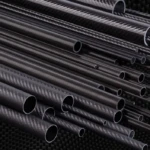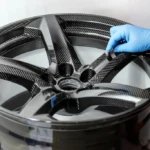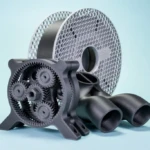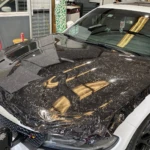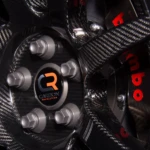CNC machining of advanced ceramics: game changer for precise manufacturing
The demand for precise manufacturing has led to the development of advanced ceramics, used in various industries such as aerospace, medical and electronics. To make these advanced ceramics, CNC machining has become an important technology. In this blog post, we will explore the complexity of advanced ceramic processing and its importance in manufacturing.
Advantages of advanced ceramic processing
CNC machining of advanced ceramics provides several advantages over traditional processing techniques. First, it allows precise control of the machining process, resulting in high precision and surface surfaces. This is especially important in industries where accuracy and finishes are critical, such as in the production of medical implants, aerospace components and precision instruments.
Second, CNC machining of advanced ceramics can produce complex geometries and shapes that will be difficult or impossible to achieve using traditional machining techniques. This is achieved by using computer-aided design (CAD) software that allows the creation of complex designs and subsequent machining of these designs using a CNC computer.
Third, CNC machining of advanced ceramics is a cost-effective solution compared to traditional processing methods. The use of CAD software and CNC machines reduces the need for manual labor, thus reducing labor costs. This makes sustainable manufacturing more viable and competitive in the global market.
CNC machining challenges for advanced ceramics
Although CNC processes advanced ceramics, some challenges still need to be addressed. One of the main challenges is maintaining the CNC machine itself. Advanced ceramics require professional care and maintenance, which can be time-consuming and expensive. Furthermore, the production of advanced ceramics often requires the use of advanced equipment, which can be expensive.
Another challenge is the development of new tools and fixtures. The production of advanced ceramics often requires the development of new tools and fixtures, which can be time-consuming and expensive. This may delay the production process and increase the overall cost of the project.
in conclusion
In short, CNC processing of advanced ceramics is a game changer in manufacturing. It offers many advantages including accuracy, speed and cost-effectiveness. However, some challenges need to be addressed, including the maintenance of CNC machines and the development of new tools and fixtures. By understanding the challenges and advantages of CNC machining of advanced ceramics, manufacturers can create innovative solutions that meet the needs of various industries.
FAQ:
Q: What is the CNC processing of advanced ceramics?
Answer: CNC machining of advanced ceramics is a process of using computer-aided design (CAD) software and CNC computers to process complex geometric shapes and shapes.
Q: What are the advantages of CNC processing of advanced ceramics?
A: The advantages of advanced ceramic processing include accuracy, speed and cost-effectiveness.
Q: What are the challenges of CNC machining of advanced ceramics?
A: The CNC machining challenges of advanced ceramics include maintenance of CNC machines, development of new tools and fixtures, and the need for advanced equipment.
Q: Is CNC machining of advanced ceramics cost-effective?
A: Compared with traditional processing methods, CNC machining of advanced ceramics can be cost-effective, especially for large-scale production operations.
Q: Can CNC processing of advanced ceramics be used for medical implants?
A: Yes, CNC processing of advanced ceramics is often used to produce medical implants such as hip replacement and knee implants.
Q: Is CNC processing of high-end ceramics environmentally friendly?
A: CNC processing of advanced ceramics can be environmentally friendly because it reduces the demand for manual labor and reduces waste.


